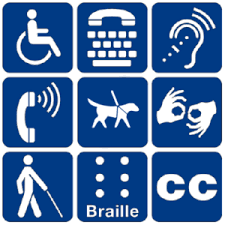 After more than 14 years of work in law enforcement and management, Jon Schorsch went on to earn a master’s degree in public administration and a juris doctor from Seattle University. In addition to his academic and professional achievements, Jon Schorsch is active in numerous organizations that advocate for people with impaired vision, including Sight Connection in Seattle, Washington. Founded in 1965 as Community Services for the Blind, Sight Connection is a leading private vision rehabilitation agency committed to helping people with vision loss enjoy an active and independent lifestyle. In addition to a low vision clinic, the organization offers independent living training programs, counseling and education services, and support for people who rely on assistive technology. In cooperation with the Seattle Art Museum, Sight Connection offers "Art Beyond Sight" tours of the museum’s collections to people with vision loss. Docents, specially trained to make artwork come alive for people with vision impairments, lead participants on an examination of portions of the museum’s collection. Docents describe the physical attributes of each piece of artwork, such as its size, colors, and objects featured in the work. The guides use vivid, poetic imagery to help participants picture the art in their minds. By hearing the historic, technical, and artistic context of the works, participants are better able to grasp the artwork’s import and effect.
0 Comments
 A retired sergeant from the Port of Seattle Police Department, Jon Schorsch served as a legal professional for the King County Department of Public Defense in his most recent professional role. Active in his local community outside of his professional endeavors, Jon Schorsch is a longtime supporter of the United Way of King County. In 2017, the United Way spent more than $9 million nationwide to help address the issue of homelessness. In Washington State, the organization is striving for new budget allocations that will help provide vouchers, grants, and other assistance to help individuals who are homeless transition into home-based living rather than become dependent upon the shelter system. It’s part of the United Way of King County’s lofty goal of reducing the number of homeless individuals by at least 50 percent in the immediate future. In addition to funding avenues, the organization has a Jobs Connect program to help match individuals with employers who have jobs they can fill. The United Way provides a way for these individuals to clean up before work, have a hot breakfast, and get a ride to their jobs as well. To learn more about the United Way of King County’s efforts in the fight to end homelessness, visit www.uwkc.org/ending-homelessness.  A longtime police sergeant with the Port of Seattle Police Department, Jon Schorsch retired from the force in 2007 and went on to earn his law degree from the Seattle University School of Law. Focused on employment law, Jon Schorsch is particularly knowledgeable about the Americans with Disabilities Act (ADA). First passed in 1990, the ADA contains provisions to protect those with disabilities in a wide range of situations, including on the job, in school districts, on public transportation, and in many other areas. The legislation and related laws have been tweaked and re-worked at various points over the past 30 years, including a significant definitional overhaul in 2008. Now, the United States Congress may be set to make another major change. In February 2018, the U.S. House of Representatives voted to approve the ADA Education and Reform Act, which puts restrictions on the timing of lawsuits related to ADA violations. Under the new bill, plaintiffs who desire to sue a business for violating ADA rules must first deliver a written warning. Businesses would then have 120 days to develop and implement a plan to rectify the violation. Supporters of the bill, such as retail shopping associations, state the changes will reduce the number of frivolous lawsuits over ADA violations, while critics claim that it will make it easier to discriminate against those with disabilities. As of April 2018, the Senate had not taken action on the bill. |
AuthorPublic Administration Professional Archives
August 2018
Categories
All
|
 RSS Feed
RSS Feed
